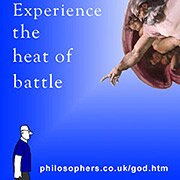A Revolution of the Mind by Jonathan Israel (Princeton University Press) £18.95/$26.95 (hb)

Jonathan Israel
These two Enlightenments – which Israel calls the Radical Enlightenment and the Moderate Enlightenment – are best distinguished by their philosophical content, in particular, by their differing attitudes to the idea of substance and the idea of human equality.
Ranged against both of these, Israel says, were the forces of conservative thought – the Counter Enlightenment – which championed the traditional values of orthodox religion and monarchy, and which resisted the attempt to subject these traditional values, and the power structures they supported, to critical examination. Disputes between thinkers whom Israel classifies as Radical and thinkers whom he classifies as Moderates were primarily disputes about how far the rational criticism of traditional values should go.
On the one hand, in the Moderate camp, Descartes set out a method for the new philosophy. Although he was willing to subject all of his beliefs to doubt, his method led him to propose a universe of two substances and an accommodation with traditional Christian theology in the form of a providential God who did not deceive us. Descartes’ deism became the template for other Moderate Enlightenment thinkers: Locke, Voltaire and Kant, for example.
In the Radical camp, Spinoza argued that there was and could only be one substance. Whether we call this substance “God” or “Nature”, Spinoza’s ontological radicalism was a direct assault on traditional Christian and Jewish theology. His work became the inspiration for both Christian Unitarians and materialist atheists, including Diderot and d’Holbach. Central to the Radical Enlightenment’s attack on traditional values was its rejection of the idea of providence and of the belief in final causes in nature and history.
Disputes over the idea of providence – the notion that God has revealed truths about morality and models for good governance though the course of human history – led directly to disputes about politics. The Moderates were suspicious of making radical change to political arrangements that had been passed down over many generations, and some doubted the capacity of the common people to employ the faculty of reason: Voltaire wrote that “nine-tenths of mankind do not deserve to be enlightened.”
The Radicals, by contrast, believed that morality and political order should be built upon reason not tradition; that despotic systems of government should be overthrown; that all men (and, in some cases, all women too) were capable of reasoned judgement; and that democracy was the ideal form of government.
Israel observes that religious scepticism and political radicalism did not always go hand in hand. His dividing line is not drawn between religious conservatives and atheist democrats, but between philosophical monists, who embraced secular morality and democratic politics, and providential dualists, who wanted to reform clerical and autocratic abuses, but were content to preserve the hierarchical social order and a mixed form of government.
A Revolution of the Mind provides a highly condensed version of Jonathan Israel’s account of the two Enlightenments. Based on lectures given during 2008 to commemorate the life and work of Isaiah Berlin, this volume, like Berlin’s best work in intellectual history, is an extended essay. Those wishing to follow Israel’s argument in more detail should refer to his three volume history, of which the first two volumes – Radical Enlightenment (2001) and Contested Enlightenment (2006) – already run to 1,600 pages of text and 140 pages of bibliography.
Why bother to undertake such a lengthy read? First, Israel’s account challenges a version of the history of modern democracy, which emphasises the correspondence between the Protestant belief in the equality of all believers with the democratic belief in the equality of all citizens. For Israel it is Spinoza’s writings – not Luther’s – that provide the inspiration for modern democratic theory. The Spinozist lineage allows us to appreciate better the secular foundations and universal appeal of modern democracy, rather than treating it primarily as a Christian- and European-inspired form of government.
Second, Israel emphasises the role of philosophical ideas as a force for social and political change. He claims that a revolution in thought led to revolutions in society and in government; that ideas can and do change the world; that philosophy is not merely a sublimate of the underlying social structure. This, then, is a version of history that champions the importance of philosophical ideas in general, as well as championing a particular set of Radical Enlightenment ideas about substance and equality.
Mark Hannam is honorary research fellow at the Institute of Philosophy, University of London
Read all tpm’s reviews as soon as they are published, and much more, by subscribing to the magazine
 Email This Post
Email This Post 



Christian Unitarians is an attempt to flatter Christianity, squaring a circle. The fact is that the people advocating the late Enlightenment period of the 18. century were more or less Unitarians, rejecting a personal theistic God. Because of roits of the mob in Birmingham they had to be cautious, knowing what happens to Priestley or because of censureship to the Wednesday Society in Berlin, Prussia and the magazine “Berlinische Monatsschrift” (Berlin Monthly). As sufficienty known, Christians believe in the trinity, whereas Unitarians were Antitrinitarians stressing that a unified “Devine Spitual Being”, which can be named “God” established the world by trial and error. - Refer also to Jeffersons letter to the Unitarian Reverend Dr. B. Waterhouse dd. 6/26/1822. Besides Unitarians mainly anticipated evolutionism (Lunar Society in England)instead of creationism.The latter being a doubtful position, open to attack.
Errata - Dr. med. Benjamin Waterhouse (1754-1846)undertook vacination against the smallpox virus. He was not an Unitarian minister.
Correction:
In my comment of Oct.7,10 it should of course read: “Divine Spiritual Being”. Sorry for the “Wurstfinger”.